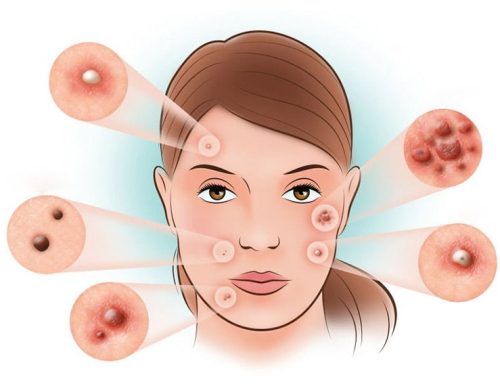Do you know there is a deep relation between acne and PCOS? It can be managed with the help of effective treatments offered by a gynecologist.
What is PCOS?
PCOS (Polycystic Ovarian Syndrome) is a common hormonal condition that concerns women of childbearing age. It is an endocrine reproductive disorder that occurs when the ovaries start to produce abundant androgens- the male reproductive hormones, which are normally present in women in low amounts
As the name suggests, the PCOS condition describes the numerous fluid-filled sacs called cysts that develop within ovaries due to anovulation. These cysts produce high levels of androgens which further cause many of the symptoms of PCOS. These signs and symptoms typically appear around the time of a teenage girl’s first menses and can develop in later life. 5 to 10% of adolescent girls and young women are affected by PCOS.
PCOS and Acne: The relation
The heart of PCOS is hormonal imbalance. According to Dr. Shilpa Bansal Agrawal, an expert gynecologist in Mumbai, the most common symptom of PCOS is high levels of androgens. The elevated androgen levels in a female body have a significant influence on the formation of PCOS Acne. They induce the sebaceous glands present in the skin to produce an excess of sebum- the natural skin’s oil.
The PCOS acne problem is an outcome of the plugging of hair follicles or clogging of the skin pores with excess sebum, dead skin cells, impurities, and sometimes trapped acne-causing bacteria which leads to inflammation. It can be noticed in different body parts among people, including Face, Chest, Neck, and Upper Back. Other contributing factors for the increased incidence of acne in women suffering from PCOS include high blood sugar levels, chronic inflammation, and stress as they wreak havoc with the production of androgen hormones.
PCOS is just one of the multiple risk factors for acne formation. Acne may even be a result of hormonal fluctuations during puberty, pregnancy, or menopause; Stress, certain medications like corticosteroids, and certain behaviors like not drinking enough water, using comedogenic skincare products or makeup, and not regularly washing face.
If one is suffering from acne due to PCOS and is looking for effective hormonal acne treatment in Mumbai, one can consult the expert Dr. Shilpa Bansal Agrawal.
Signs and Symptoms of PCOS
PCOS can manifest itself in various ways, including:
The Symptoms of PCOS Acne include:
If one is encountering these issues, they can consult for PCOS Acne treatment in Mumbai at Harleys Cosmetic & Women Clinic.
How can PCOS-induced Acne be Treated?
Primarily, consulting a gynecologist is always recommended to people experiencing symptoms of PCOS condition because the exact reasons behind PCOS are uncertain. As the main cause of PCOS acne is the high androgen level, treatment of the underlying hormonal imbalance can help clear PCOS-related acne. If PCOS gets treated, the acne caused by the condition will automatically resolve. However, this might not always be easy and require a lot of time.

Here are the best treatment options for PCOS-related acne, prescribed by a gynecologist:
Tips for Good Skincare for PCOS-induced Acne Control and Management

Harleys Cosmetic and Womens Clinic
101-102, Jyoti Tower, DN Nagar,
Next to Nav Chaitanya, off Link Road,
Andheri West, Mumbai - 400053. Locate us
Request An Appointment
